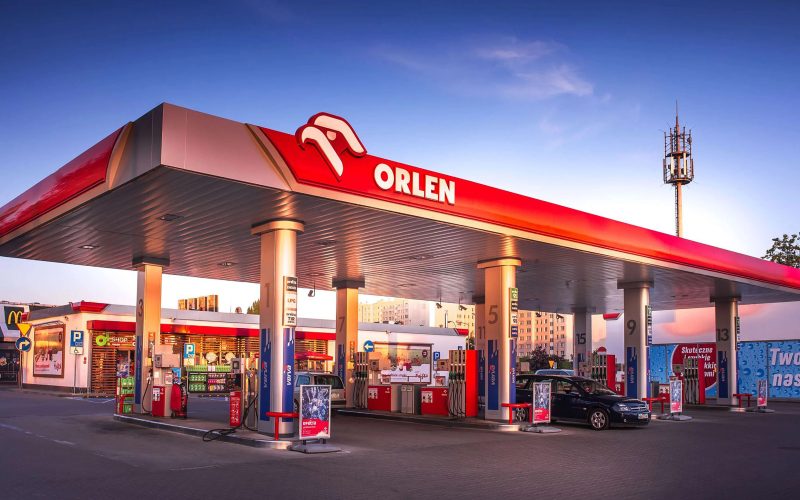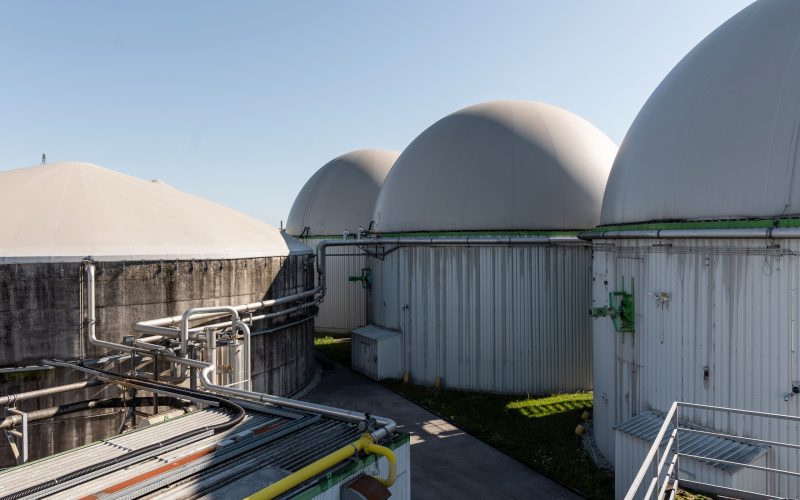Export of biomethane — a new page in the Ukrainian energy sector
In 2025, Ukraine took a crucial step in its energy integration with the EU by starting to export biomethane to European countries. This is not only a technological achievement, but also a political and economic milestone that demonstrates: Ukraine is capable of generating clean energy in accordance with European standards.
Currently, there are four biomethane plants in Ukraine, three of which are already exporting biomethane. Three of the four projects were implemented with the participation of Ukrainian engineering company and UABIO member Pro-Energy. The company accompanied customers at every stage – from the idea to the full launch of the projects: development of technical solutions, project design, equipment supply, installation, commissioning, and subsequent maintenance.

Energy for export: what has been done so far
Among the implemented projects that prove the agricultural sector’s readiness for biomethane production is a biomethane plant based on the existing biogas complex of one of the Ukrainian agricultural holdings. The plant was put into operation in January 2025, despite challenges related to the seasonality of work and the continuity of existing production.
Key features:
- Place of implementation: Ukraine (agricultural holding, exact location not specified).
- Type of feedstock: agricultural waste, mainly poultry waste.
- Biogas capacity: 2500 Nm³/hour.
- Capacity of the biomethane plant: 12.8 million Nm³/year.
- Implementation period: 11 months.
- Project partners: Bright Renewables (Netherlands).
- General contractor: Pro-Energy.

The solution provides the company with flexibility in choosing the direction of energy generation – electricity or biomethane – in accordance with market conditions. The high technical performance and short implementation time made this case a model of effective integration of biomethane into the Ukrainian energy sector.
Membrane or amine? The technological choice that matters
Along with the market growth, there is also a debate about the choice of biogas to biomethane technologies. Today, there are two main upgrading technologies: membrane and amine (based on amine scrubbers). The latter is often presented as a more efficient alternative. But is this justified in practice?
Pro-Energy implements membrane technology for biogas purification. It has systemic advantages that make it the best solution not only in theory but also in practice:
| Indicator | Membrane | Amine scrubber |
| CH₄ recovery | 99,5% | 99,9% |
| Energy consumption | Medium | High (heat) |
| The necessity of chemicals | None | Yes (MEA, DEA) |
| Operating costs | Medium | Higher due to the use of solutions |
| Stability and environmental friendliness | High | Doubtful (amine evaporation) |
| Ease of service | Plug & Play | Difficult implementation and operation |
| CH₄ losses at the degassing stage | Minimum | Loss of biomethane for system heating |
| Installation costs | Low | High |
Technology comparison:
| Indicator | Membrane technology | Amine technology |
| Biomethane purity | Up to 99% | 99%+ |
| H2S sensitivity | High | Lesser |
| Flexibility in scaling up | High | Low |
| Energy demand | Higher | Lower |
The membranes do not require heat exchangers, reagents, or frequent technical intervention. They are easy to install, scalable, and, most importantly, comply with the standards applicable to the European biomethane market. That is why they are used in projects that were the first to be exported.
How to choose: a short recommendation from Pro-Energy
For small and medium-sized plants (up to 2000 m³/h of biogas):
- Cheaper and more flexible installation.
- No reagent handling.
- Easy scalability in the future.
For large plants (from 2000 m³/h of biogas) with strict requirements for biomethane quality (e.g., export to the gas network):
- Amine technology can be economically viable if there is a stable and relatively cheap heat supply system.
- The increased CH₄ recovery compensates for the complexity of the system in the long run.
“Membranes are not an experiment, but a mature solution”
Ruslan Delidon, Director of Pro-Energy, believes that membrane technologies are key to scaling up the Ukrainian biomethane sector:
“Today, when we talk about biomethane exports, it is not just a gas supply. This is a confirmation that our solutions are technologically fully compliant with the high EU standards. Membranes are not a trend, they are a proven and fast solution. And they give us a competitive advantage in the face of stringent time, technical and environmental requirements. Another important factor is reliable and prompt local service support, which directly affects the operational performance of biomethane plants”.
Biomethane as an energy independence strategy
Ukraine has all the prerequisites to become a regular exporter of biomethane:
- Strong agricultural base → raw materials for biogas.
- Experienced integrators → implemented projects.
- Access to the European market → common gas system with the EU.
Pro-Energy, thanks to its experience in implementing a full cycle of projects, is actually forming a new infrastructure for energy independence based not on imported gas but on resources already available in the country.
Conclusion: membranes are the way to a sustainable future
When the choice is between environmental friendliness, simplicity, speed of implementation and reliability, membrane technology wins. It has proven its effectiveness not only on paper but also in real cases that are already being exported.
The Pro-Energy team is your experienced partner in the implementation of bioenergy solutions, delivering results from idea to launch.
Ready for implementation? Request a consultation and find out how your business can make money on biomethane this season.


